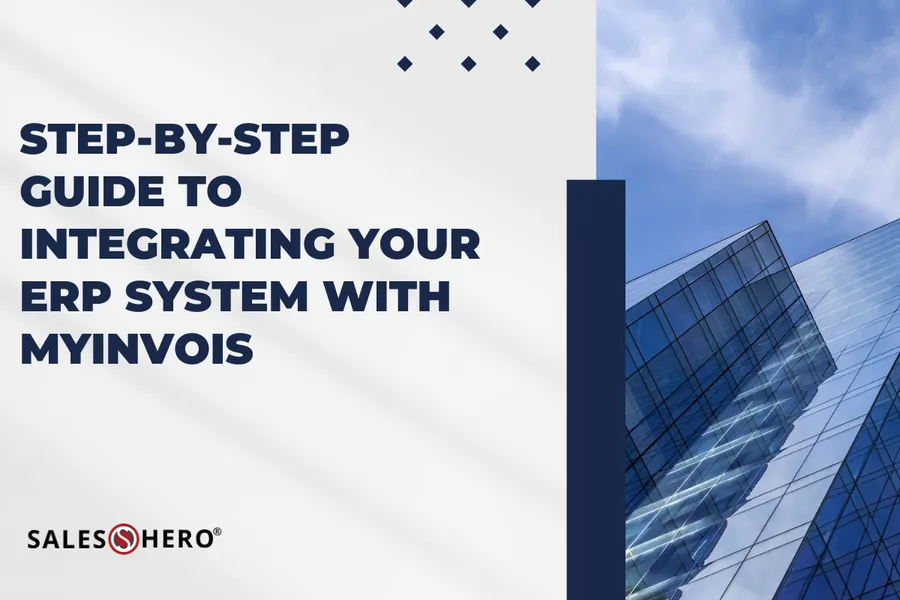
Step-by-Step Guide to Integrating Your ERP System with MyInvois
Step 1: Understand MyInvois Requirements
Before starting the integration, familiarize yourself with the MyInvois portal’s technical specifications, data formats, and compliance standards. This foundational knowledge is essential for a smooth integration process.
Step 2: Prepare Your ERP System
Ensure that your ERP system is updated to the latest version and that your data is clean and well-organized. A system backup is also recommended to prevent data loss during the integration.
Step 3: Register with MyInvois Portal
Create a user account on the MyInvois portal and provide the necessary business information and documentation. Obtain access credentials, such as API keys and tokens, required for the integration.
Step 4: Develop the Integration
You can either develop the integration in-house or use a third-party solution like HeroInvoice.
Option 1: In-House Development
-Obtain and review the MyInvois API documentation, which includes endpoints, authentication methods, and data payload formats.
-Develop an API client within your ERP system to communicate with the MyInvois API. Implement API calls to submit invoices and handle responses and errors securely.
Option 2: Third-Party Solution
-Obtain and review the MyInvois API documentation, which includes endpoints, authentication methods, and data payload formats.
-Develop an API client within your ERP system to communicate with the MyInvois API. Implement API calls to submit invoices and handle responses and errors securely.
Step 5: Test the Integration
Submit test invoices to the MyInvois portal and verify that data is transmitted correctly and securely. Resolve any issues that arise during testing.
Step 6: Go Live
Once testing is successful, start submitting actual invoices through the integrated system. Monitor the integration for any issues and maintain regular checks.
Step 7: Ensure Ongoing Compliance and Updates
Stay updated with any changes in MyInvois regulations and update your integration as necessary to comply with new requirements. Regularly maintain your ERP system and integration solution to ensure ongoing compliance.
Conclusion
Integrating your ERP system with the MyInvois portal involves understanding requirements, preparing your ERP system, registering with MyInvois, developing the integration, testing it, going live, and ensuring ongoing compliance. Whether you choose in-house development or a third-party solution like HeroInvoice, following these steps will help you achieve a seamless and compliant integration.
